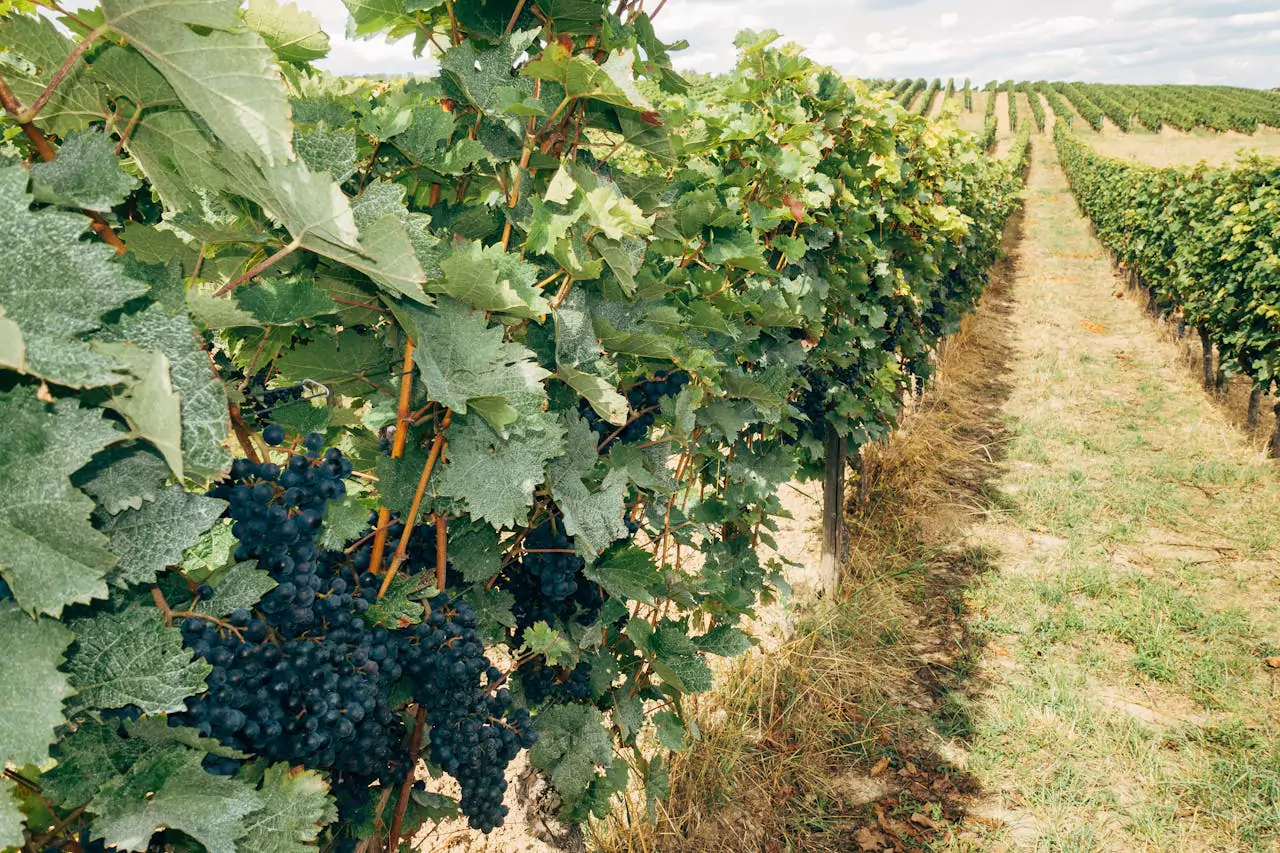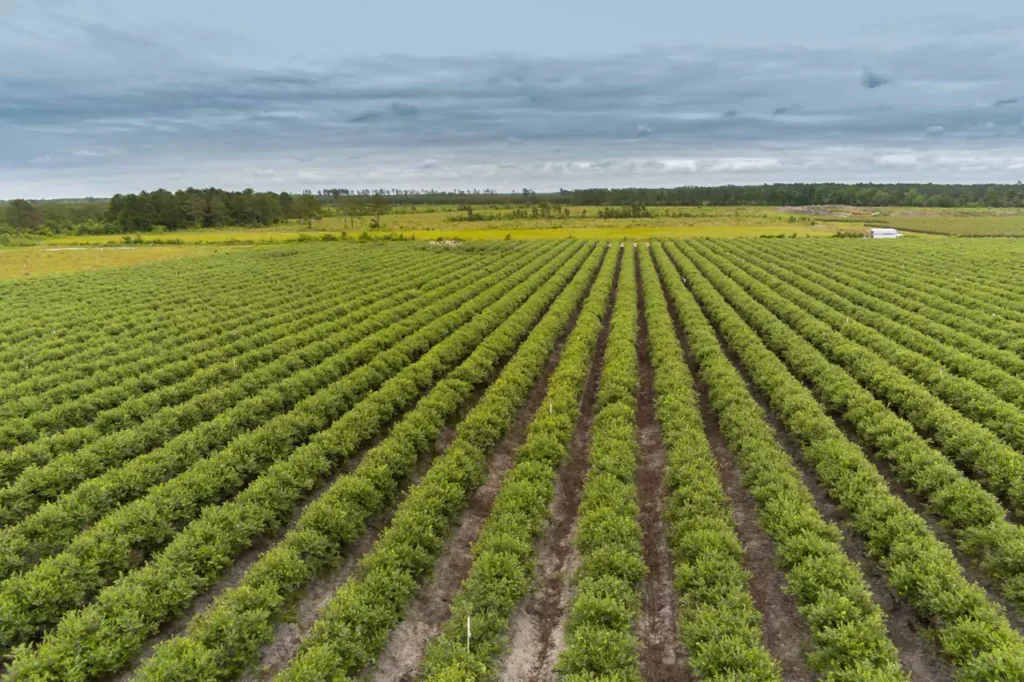
At the prestigious 17th Annual Global AgInvesting (GAI) New York conference, held at the New York Hilton Midtown, Tyler Shegerian, Co-Founder and Chief Operating Officer of PACT Capital, delivered a compelling presentation on the emerging investment landscape within California’s agriculture sector. Representing an investment management firm that specializes in agriculture and commercial real estate credit, Shegerian’s insights offered a timely and forward-looking view of how private credit strategies can align with one of the most dynamic agricultural economies in the world.
Shegerian’s session, titled “California Agriculture: Strong Fundamentals, and the Opportunity for a Private Credit Strategy,” was well-attended and sparked significant engagement from a capacity audience made up of investors, agribusiness professionals, and finance executives. His talk centered around the structural strengths of California agriculture, the evolving macroeconomic conditions, and how these factors combine to present a once-in-a-generation opportunity for investors seeking exposure to stable, asset-backed returns through private credit.
“The California agriculture economy is experiencing a once in a generation investing opportunity,” Shegerian emphasized. “It’s rare to see conditions aligning so perfectly—historic pricing resets, resilient fundamentals, and a supportive policy environment—all of which create a window for investors to acquire or finance top-tier agricultural assets at an irreplaceable basis.”
California’s Unique Agricultural Position
In his presentation, Shegerian laid out California’s distinctive advantages in the broader U.S. and global agricultural markets.California Agriculture As the nation’s leading producer of food, California is home to a multibillion-dollar agricultural industry, supplying over a third of the country’s vegetables and nearly two-thirds of its fruits and nuts. Beyond its sheer productivity, Shegerian pointed to several structural and environmental factors that position California as a long-term outperformer in agriculture:
- Climatic Resilience: Despite climate variability, California’s diversified microclimates and well-established irrigation infrastructure provide stability and yield consistency unmatched in many parts of the world.
- Infrastructure & Supply Chain Maturity: The state boasts a highly developed supply chain network, including refrigerated transportation, world-class ports, and processing facilities that support both domestic consumption and international export.
- Market Access: With proximity to major population centers and global export markets, California agricultural producers enjoy reduced logistical costs and broader access to high-margin buyers.
Shegerian also highlighted recent policy shifts and governmental support initiatives aimed at sustaining California agriculture through modernization, water management innovations, and land conservation efforts. These factors further enhance the investment case for both equity and credit investors focused on long-term, sustainable exposure to the agricultural sector.
Rise of Private Credit in Agriculture
A central theme in Shegerian’s talk was the growing relevance of private credit as a strategic investment vehicle in agriculture. With traditional lending institutions becoming more cautious due to evolving regulatory frameworks and increased capital requirements, a significant credit gap has emerged—particularly for mid-size and large-scale agricultural operators looking for flexible, growth-oriented capital solutions.
“Private credit is stepping in to fill the void left by banks,” Shegerian noted. “It’s not just about providing capital—it’s about building relationships, understanding the seasonal nature of ag cash flows, and structuring facilities that support both operational stability and expansion.”

Through his firm, PACT Capital, Shegerian has been at the forefront of developing tailored credit products for California agriculture. These include asset-backed loans secured by farmland, irrigation systems, and processing infrastructure, as well as mezzanine and bridge financing to support transitions in ownership or generational shifts in farming operations. The firm’s disciplined underwriting, combined with an intimate understanding of California’s agricultural ecosystems, positions it to generate attractive risk-adjusted returns for its investors.
Investor Sentiment and Market Outlook
During the session’s lively Q&A, attendees inquired about a range of topics including inflationary pressures on input costs, the impact of water rights on asset values, and the potential implications of geopolitical trade tensions. Shegerian responded candidly, citing proprietary data and recent case studies to illustrate how PACT Capital manages risk and identifies value in a complex landscape.
He also expressed optimism regarding the long-term outlook of California agriculture, pointing to increasing global food demand, rising land scarcity, and ongoing technological innovation in agtech and precision farming. These macro trends, he argued, will continue to drive value appreciation for high-quality agricultural assets, particularly those located in resilient and productive regions like California.
“California’s ag sector isn’t just about crops—it’s about communities, legacy, and innovation,” Shegerian concluded. “We believe the state is poised to lead the next wave of sustainable agricultural investment, and we’re excited to help build that future.”
The Role of GAI in Shaping the Conversation
The Global AgInvesting conference has long been recognized as one of the premier venues for agri-investment professionals worldwide. Each year, GAI New York brings together over 700 stakeholders—including institutional investors, family offices, agribusiness executives, policymakers, and startup founders—for three days of panels, keynotes, and networking events.
The conference is known for its emphasis on data-driven content, peer-to-peer learning, and real-world case studies. It plays a critical role in helping investors understand sector-specific trends while fostering a collaborative environment for developing new investment strategies.
“GAI is vitally important for investors because it gives a broad spectrum of thought leaders from the sector the opportunity to share what they know,” Shegerian remarked. “We look forward to future events and the opportunities to continue sharing insights into the massive potential of what is an increasingly vibrant California agriculture market.”
As the agricultural investment landscape continues to evolve in response to climate change, market dynamics, and global food security challenges, the insights shared by leaders like Tyler Shegerian are more valuable than ever. With private credit strategies gaining traction and California standing tall as a beacon of agricultural innovation, the opportunities for investors willing to take a long-term view appear stronger than ever.
Let me know if you’d like this formatted as a press release or tailored for a specific audience like investors, media, or general readership.




